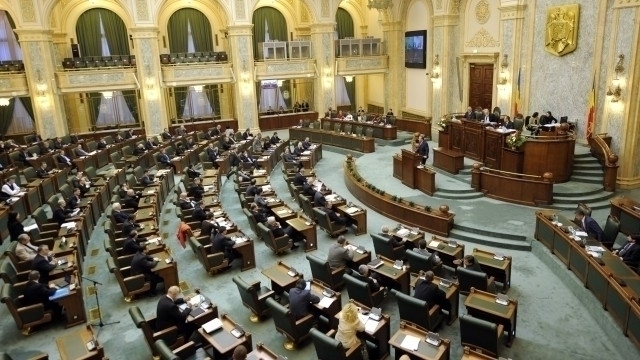The TV-radio license fee closer to being eliminated
The request of President Klaus Iohannis regarding the re-examination of the law on the elimination of 102 non-fiscal fees, among which the radio and TV license fees, was rejected by Parliament.

Corina Cristea, 28.12.2016, 16:57
The new Romanian Parliament rejected the request made by President Klaus Iohannis to re-examine the law on the elimination of 102 non-fiscal taxes, among which the radio and TV license fee. Declared constitutional by Constitutional Court, the law had been sent back to Parliament by President Iohannis who said that a decision on the funding sources of the public radio and television stations should be made as part of a larger debate meant to thoroughly reform the functioning of these two institutions.
According to the president the debate cannot be limited to the question whether a licence fee is necessary or not for supporting the public radio and televisions stations. President Iohannis also said that the problems facing the public radio and television stations are old and systemic, and are mainly due to the legislative framework that regulates the institutions’ functioning.
His arguments however were faced with the opposition of the Social Democratic Party, the Alliance of Liberals and Democrats and the Democratic Union of Ethnic Hungarians, which hold the majority in Parliament and which deemed the president’s arguments ungrounded. Therefore the law on the 102 non-fiscal taxes has again been passed by Parliament in its initial form, with one single amendment: it will take effect on the first day of the first month following the law’s publication in the Official Gazette.
This will most probably happen on February 1, 2017 because the president has now been left with the only option of promulgating the law in 10 days at the most. Shortly after the vote, the initiator of the bill, the Social Democrat Liviu Dragnea said that the law would make the lives of many Romanians better.
Previously the leader of the Social Democrat senators Serban Nicolae had given assurances that there are resources from the budget for the two public services to function properly. The former minister of culture, the Save Romanian Union senator Vlad Alexandrescu has drawn attention to the fact that the elimination of the TV and radio fee affects the autonomy of public services.
Moreover, it infringes upon citizens’ right to information, the senator has also stated, adding that in the context of the politicisation of the two public services, which has already reached the highest level, having them become financially dependent on the Government might lead to them becoming fully obedient to the ruling power.
Passing at high speed through Parliament during the election campaign, the bill on the elimination of 102 non-fiscal fees has triggered controversies and fierce debates on the public stage. Defenders of the fee, including media organisations and experts, say that giving up this fee and funding the public media services exclusively from the state budget would create the background for their full subordination to political decisions.






























